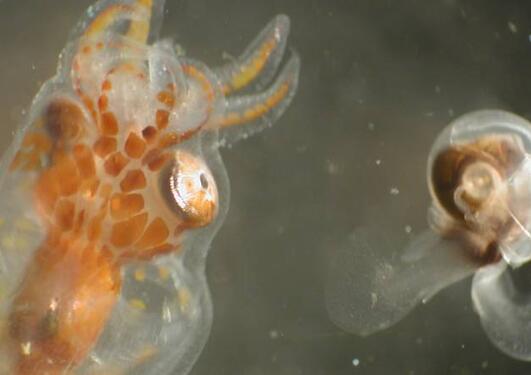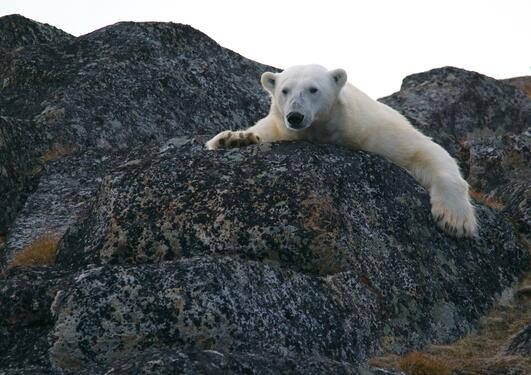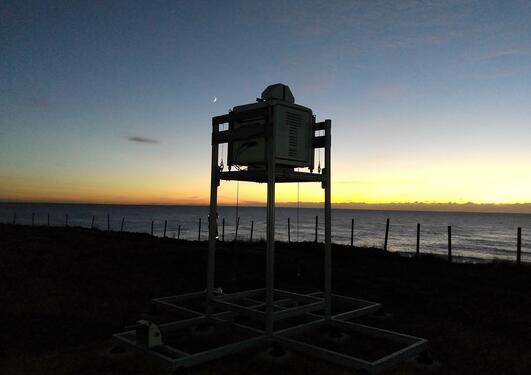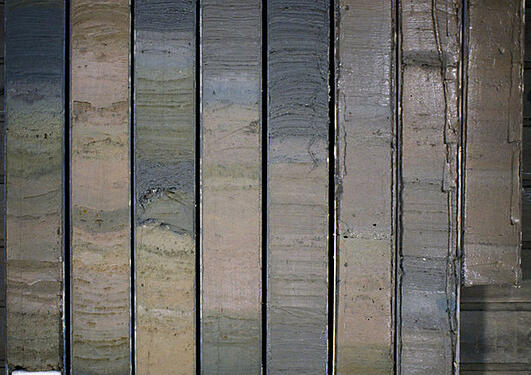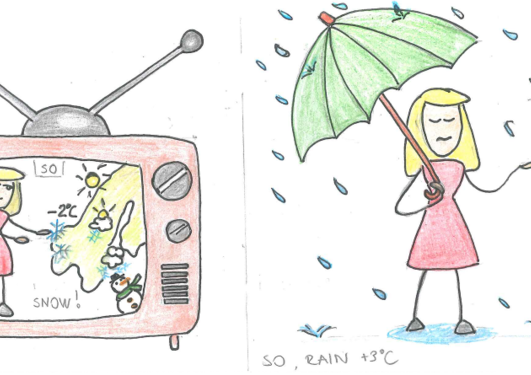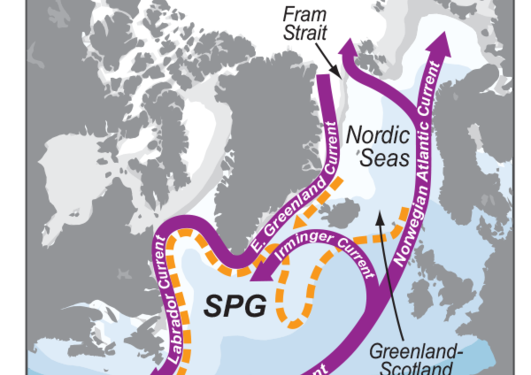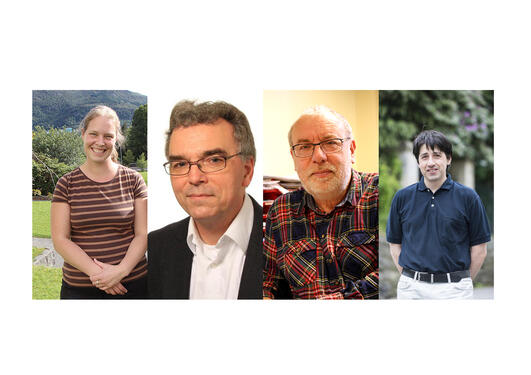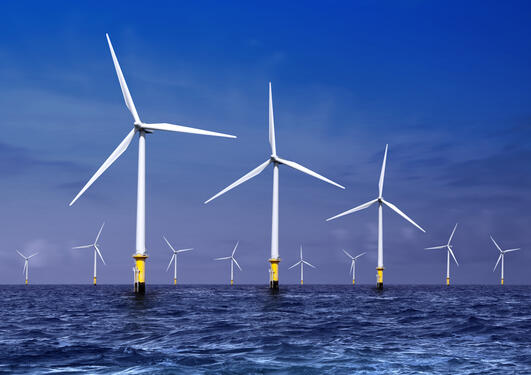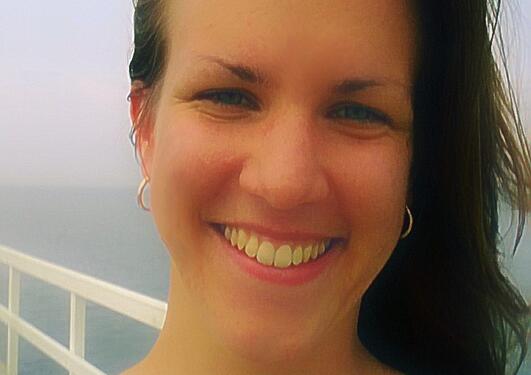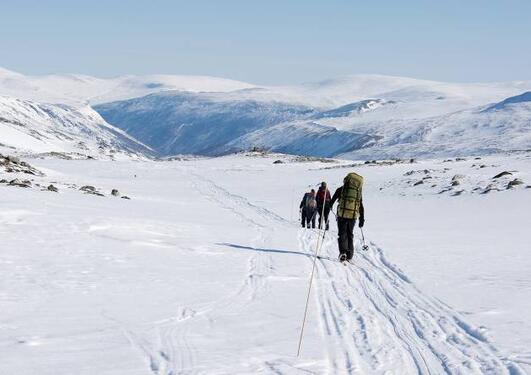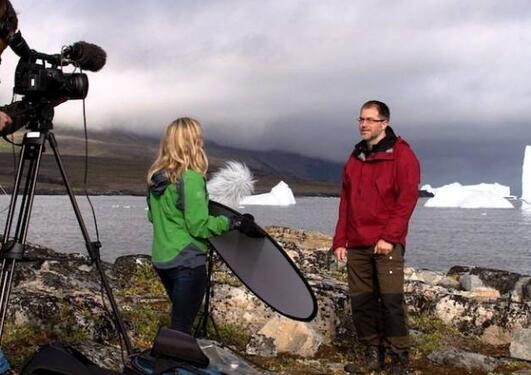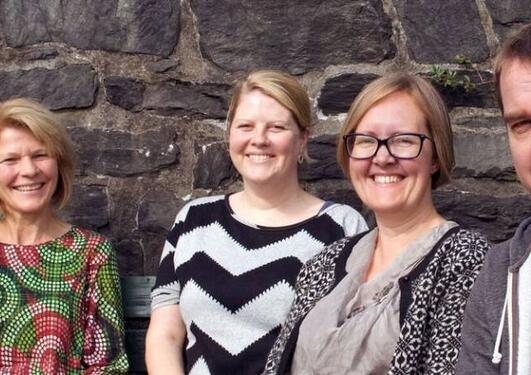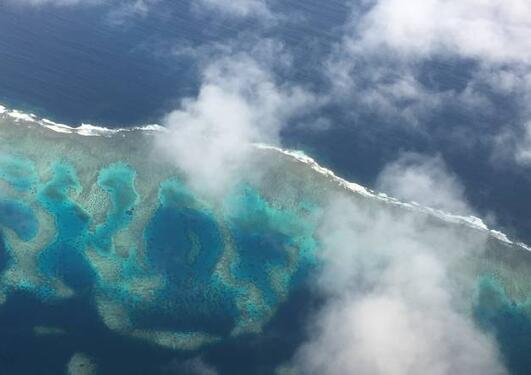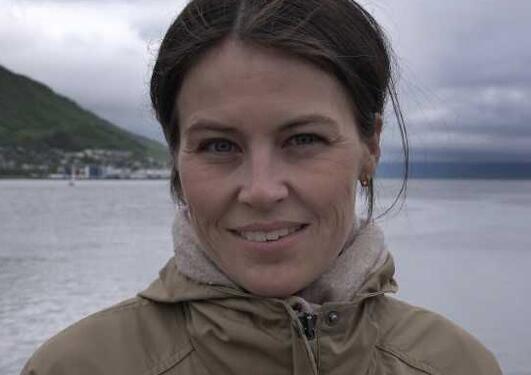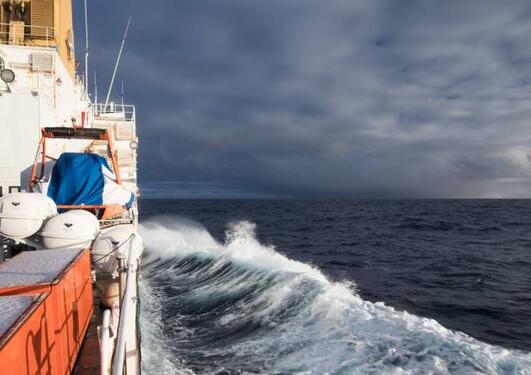News archive for Geophysical Institute
The living conditions for marine microorganisms in the Southern Ocean may dramatically worsen by the end of the century. More acidic water can make their territories shallower.
Since 1971 Svalbard has experienced a winter warming of 7°C. This has caused major changes, and there is an urgent need to plan for the future, states the new “Climate in Svalbard 2100” report.
Floating wind turbines keep getting bigger, giving us more energy. A UiB-project will measure the wind's capabilities in an entirely new fashion, paving the way for more efficient wind energy at sea.
Carbon composition is a combined signal of ocean circulation and local biological and chemical processes, a new study shows, drawing special attention to the Southern Ocean.
Even though weather forecasts have become very good over the last decades, you can sometimes be waiting for snow that never falls. A new study searches for the origins of an erroneous forecast.
What caused abrupt climate swings known as the Dansgaard-Oeschger events of the last ice age?
Almost one-fifth of the world’s population depends on rivers coming from the Himalayas and the Tibetan Plateau. Yet, only one in a thousand glaciers and lakes in this region have monitoring stations and constraints on the hydrological cycle are poor, Hans Christian Steen-Larsen and colleagues writes in a comment in Nature.
Climate-Ocean research and tipping points are common denominators in three new EU funded research projects at the Bjerknes Centre. Christoph Heinze, Noel Keenlyside and Svein Østerhus together with Petra Langebroek received a nice pre-Christmas present, as EU gave their thumbs up for the three new projects.
Climate researcher Tore Furevik suggests that Norway should think big. Offshore wind can turn the country into a zero-emission society, as well as creating a major boost for the economy.
Algae do not live long, and the nutrient content of the water can change quickly. If you want to predict the primary production in the Barents Sea one or ten years ahead, it is more important to know the current conditions of temperature ocean currents, than the nutrient content in the ocean here and now.
With all the rain pouring down this autumn, some may already look forward to an equally snow-rich winter as last year's in Western Norway. While the seasonal forecasts have not yet reached a consensus, at least by now some Bjerknes scientists know more about last year's snow.
The University of Bergen has taken on a leadership role on SDG 14, Life below water, for United Nations Academic Impact, and will act to inspire and motivate partners worldwide to create greater knowledge towards a sustainable ocean.
Three-week course in October guided by UiB and Bjerknes Professors.
The Bergen Offshore Wind Centre officially opened on 13 September. For the University of Bergen this is an important part of our contribution to society, according to Energy Director Kristin Guldbrandsen Frøysa.
By taking up CO2, the oceans slow down the pace of climate change. But this invaluable service of the oceans comes at a cost. Are Olsen, Nadine Goris, Siv Kari Lauvset and Ingunn Skjelvan are revisiting the problem of ocean acidification in a new Foresight Brief published by the UN Environment.
Lea Svendsen was at first surprised to see how the Pacific impacted winter temperatures in the Arctic. Now, her results have been published in Nature Climate Change, while the Pacific transitions into a warm phase again.
The Arctic is about to shrink, shows a new study, as an important part of the Arctic Ocean shifts over to an Atlantic climate regime. The rapid climate shift occurs in the northern Barents Sea—the Arctic warming hotspot where the surface warming and loss of winter sea ice is largest in the entire Arctic.
With global warming, ocean circulation in the Atlantic Ocean is generally thought to weaken. New research shows that less sea ice off the coast of Greenland may work against this.
Pages
- April 2025 (1)
- March 2025 (1)
- February 2025 (4)
- October 2024 (1)
- September 2024 (2)
- August 2024 (1)
- April 2024 (3)
- November 2023 (1)
- October 2023 (1)
- June 2023 (2)
- March 2023 (1)
- January 2023 (3)
- June 2022 (1)
- April 2022 (1)
- March 2022 (1)
- January 2022 (1)
- November 2021 (1)
- June 2021 (1)
- March 2021 (1)
- February 2021 (1)
- September 2020 (2)
- August 2020 (2)
- January 2020 (2)
- December 2019 (1)
- November 2019 (1)
- October 2019 (4)
- August 2019 (2)
- July 2019 (2)
- June 2019 (1)
- May 2019 (4)
- April 2019 (2)
- March 2019 (3)
- February 2019 (1)
- January 2019 (5)
- December 2018 (2)
- November 2018 (1)
- October 2018 (2)
- September 2018 (3)
- August 2018 (1)
- July 2018 (1)
- April 2018 (2)
- March 2018 (2)
- February 2018 (2)
- January 2018 (1)
- October 2017 (3)
- September 2017 (1)
- June 2017 (6)
- May 2017 (2)
- April 2017 (1)
- March 2017 (1)
- February 2017 (2)
- December 2016 (2)
- November 2016 (2)
- October 2016 (1)
- September 2016 (4)
- August 2016 (1)
- June 2016 (1)
- May 2016 (2)
- April 2016 (1)
- February 2016 (1)
- December 2015 (1)
- November 2015 (1)
- May 2015 (1)
- January 2015 (1)
- December 2014 (1)
- October 2014 (1)
- September 2014 (1)
- August 2014 (1)
- June 2014 (1)
- March 2014 (2)
- February 2014 (1)
- December 2013 (1)
- November 2013 (1)
- October 2013 (1)
- August 2013 (1)
- November 2012 (1)
- October 2012 (1)
- September 2012 (1)
- August 2012 (1)
- February 2011 (4)
- January 2011 (2)
- October 2009 (2)
- January 2009 (1)
